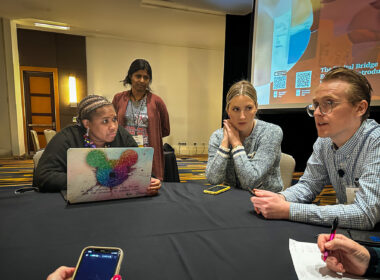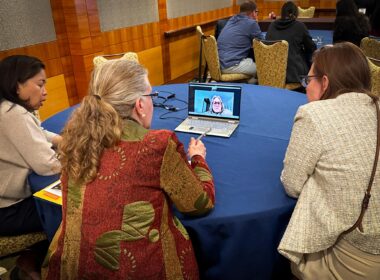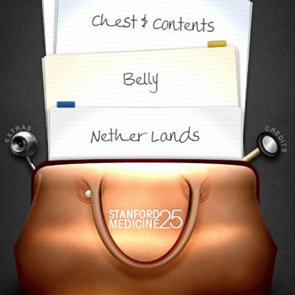July 24, 2013
Larry Chu, MD
I recently visited Northwestern and presented a workshop on Hacking EdTech. Here are a few items we discussed and links to relevant resources:
- Hacking Google Docs for EdTech
- Hacking your iPhone
- Phocus 3 Lens bundle for iPhone 5
- Camera Pistol Grip
- Audiotechnica Lavelier Microphone
- iPhone 3.5mm Adaptor Cable (You will need this to plug any microphone into the iPhone)
- Younguo LED ring light (add a paper diffuser and you’ll have a good supplementary light source for your next shoot)
- Favorite Video Hacking Resources
- Cheesy Cam (Aim for professional results with low cost resources)
- Abelcine (My “go to” source for professional video equipment, but they also have online tutorials and videos that are great)
- TheC47 (Jem Shofield is a master instructor on instructional video production!)
- The Location Crew (Dean Miles knows everything about professional sound production)
- What we’re using in the AIM Lab
- Panasonic HMC150 (our run-and-gun “go to” camera)
- Canon C100 (our cinema style camera, we have two for instructional videos and interviews)
- Sennheiser EW100 G3 Wireless Lavelier Microphones (make sure to get the correct frequency range for your geographical shooting location)
- Dedo Lights (expensive, but lightweight and portable location lighting)
- GoPro Black Edition (we’ve tried all sorts of POV cameras and these are our favorite. The black edition shoots 4K and 720p 120 fps, and has the remote and wifi built-in)
- Expensive (but best performing) lavelier microphone, on our wishlist.
- Inexpensive wired lavelier microphone for less than $20.
- Apps and Websites
- Present.me is the easiest instructor-centric method of recording narrated powerpoint presentations and sharing them through the cloud.
- LearnDash is a reasonable WordPress-based MOOC LMS. The developer Justin Ferriman is dedicated to improving the platform and regularly releases updates.
- Tin Can API is a promising method to log LMS interactions (and much more!). It is an evolving project and we are excited to see where it might take things.
- Moodle is the quintessential educator-centric LMS and what we use to deploy many of our projects. It is powerful and free, but has a bit of a learning curve. Customizing the UI requires special expertise.







